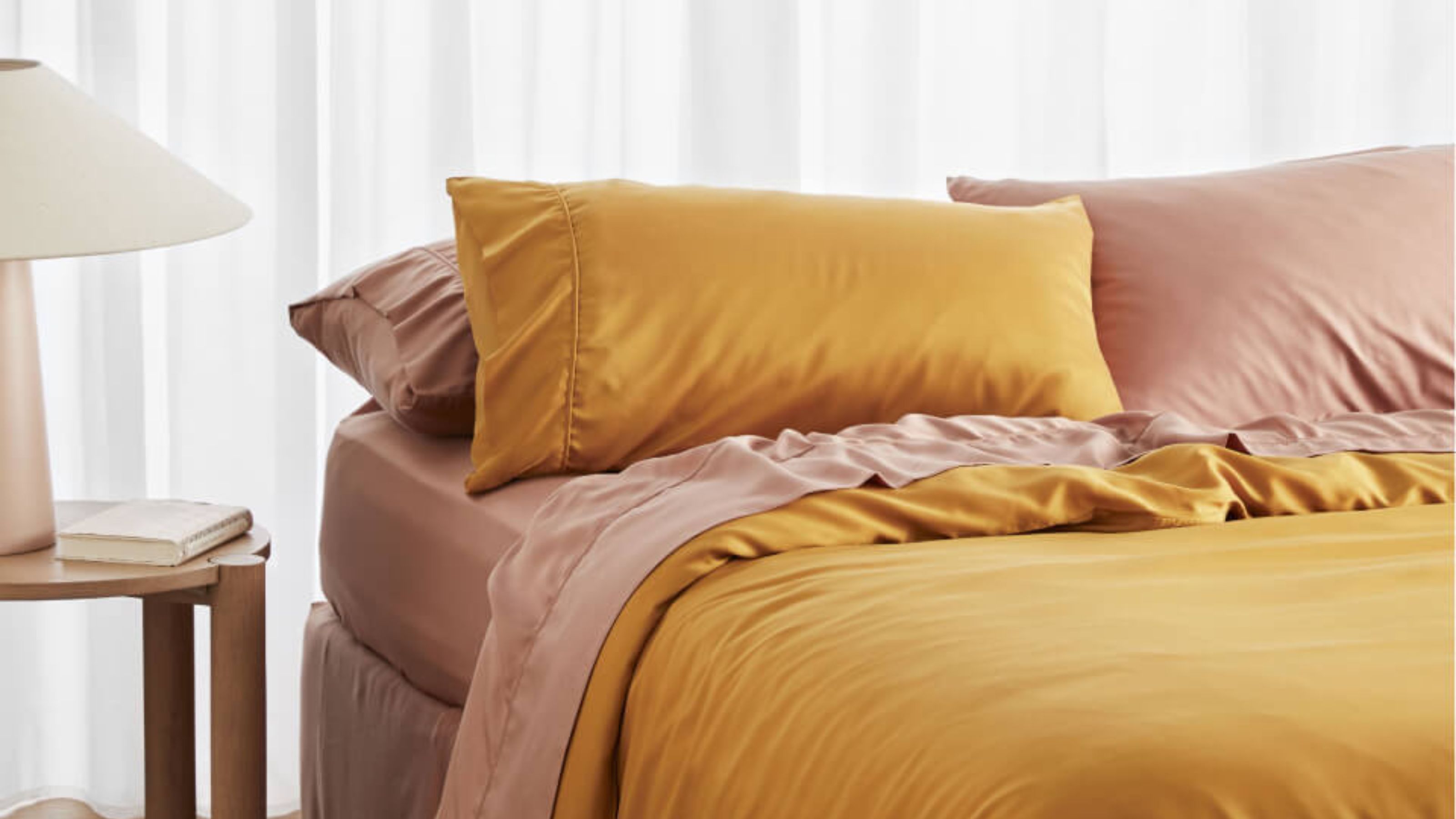
Sleep hygiene. It's one of those phrases we hear all the time recently, and it's actually a really simple concept. It's just a way to summarise all the behavioral habits and environmental factors that can impact our sleep.
Sleep hygiene, or should we say good sleep hygiene, is about having a consistent sleep schedule that achieves the right amount of sleep (for adults that is 7-9 hours), and having the ideal bedroom environment that's free from distractions. Having the best bedding and best mattress for you, and having healthy habits throughout the day will help bring on sleep at night. And that's not all.
Essentially, if you are struggling to get to sleep, achieve the recommended amount of sleep, or want to focus more on your sleeping habits, strengthening your sleep hygiene is the best place to start. We've asked experts to explain what is sleep hygiene in a bit more detail, why it's so important, and what changes you can be making to ensure you sleep better and wake up feeling rested.
What is sleep hygiene?

So what exactly is sleep hygiene? First up, it’s nothing to do with whether you’ve showered, it refers to your sleeping habits and sleep environment.
'Sleep hygiene is a term used to describe our sleep routines and our sleep environment,' says Dr. Peter Polos, a sleep medicine specialist. 'It includes things like maintaining a cool, quiet, and dark bedroom, with proper bedding and pillows, and not using cell phones before sleep.'
Good sleep hygiene might not look the same for everyone, we all have different habits and different priorities when it comes to sleep. So sleep hygiene really just refers to any factor that would impact your sleep – external and internal.
Why is sleep hygiene important?
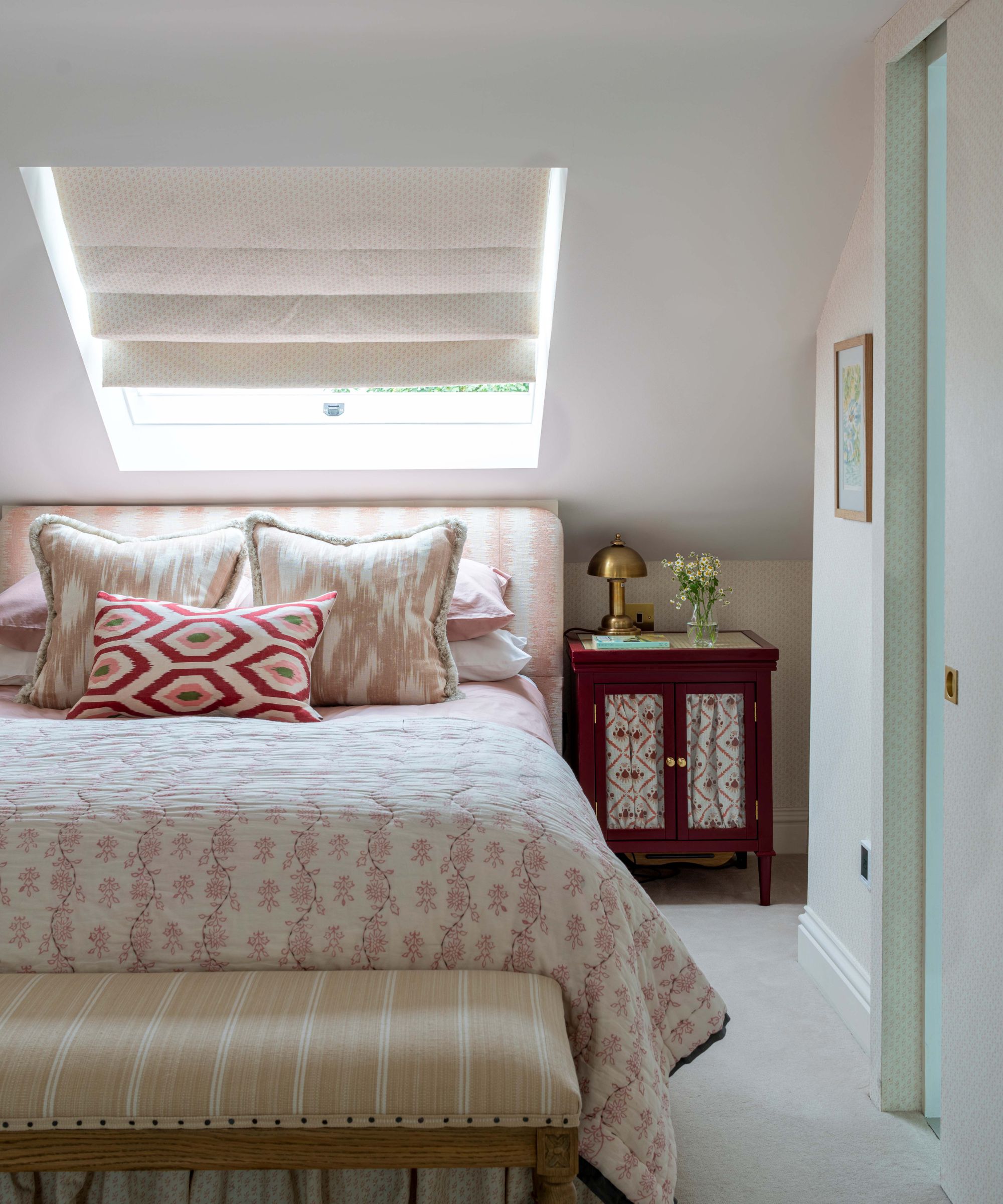
So why all the hype about sleep hygiene? Well, in short, if you have good sleep hygiene you are getting the right amount of quality sleep every night. 'Good sleep hygiene helps us fall and stay asleep, and get deeper, more rejuvenating rest,' says sleep expert Olivia Arezzolo.
It goes without saying that there's a plethora of evidence that suggests that people who pay attention to sleep hygiene enjoy better sleep. 'The proof is in the pudding. Over 7 out of 10 adults who engage in high levels of National Sleep Foundation recommended sleep behaviors also have good sleep health according to the 2023 Sleep in America Poll'.' says Joseph Dzierzewski, Vice President of Research and Scientific Affairs at the National Sleep Foundation.
Getting regular restful sleep has major health benefits. 'Sleep is vital for our overall health and well-being – the role it plays in our lives cannot be understated. How we sleep can impact our immune system, alertness and productivity, our eating habits, and our health.' says Peter.
But you pay the price when you don’t take care of your sleep habits. 'When we stray from our regular sleep routine, it can disrupt our circadian rhythm (our body’s internal clock), making us feel sluggish and tired throughout the day,' adds Peter.
Over time, you can fall into a vicious cycle, with lack of sleep making it harder to unwind. 'Our stress hormone, cortisol, can increase by 37% with insufficient sleep leaving us anxious, wired, and unable to switch off,' cautions Olivia.
What are the signs of bad sleep hygiene?
If you neglect your sleep hygiene, you may experience common symptoms. According to Peter, these are all telltale signs:
- Waking up groggy
- Feeling tired throughout the day
- Finding it hard to focus
- Low energy
- Forgetfulness
- Irritability or mood swings
- Poor health and immunity
- Disrupted eating habits or bodily functions
If you are having issues falling asleep in the first place too, this will be helped by improving your sleep hygiene. If any of these symptoms sound familiar, it may be time to change your habits to give you the best chance of a better night's sleep.
How can you improve your sleep hygiene?
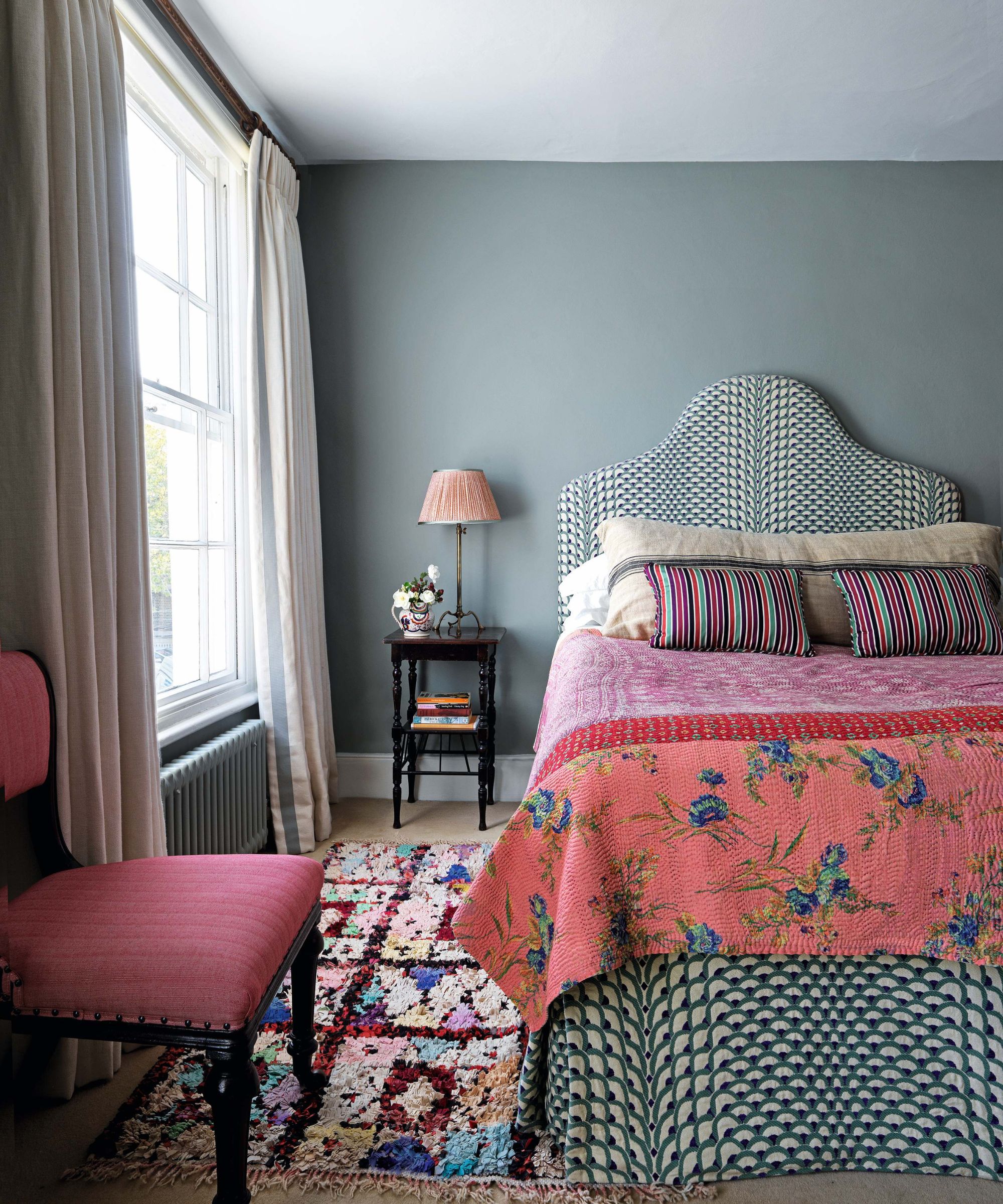
Thankfully, small changes to your sleep hygiene can make a big difference. As with any lifestyle shift, consistency is key. Be patient with yourself as you make any changes. Try jotting down the effects of any adjustments in a journal to keep track of what works for you.
1. Set a schedule
It may sound obvious, but it’s easy to forget the basics. 'I recommend setting a sleep schedule to ensure 7-9 hours of sleep, depending on your needs and personal preferences,' advises Olivia. Be realistic about what you can stick to and keep to it, yes that includes the weekends.
2. Keep the bed for sleep
It can be tempting to work from your bed on the odd occasion, watch TV or even have a sneaky takeaway. But really do keep these to occasional, the bed should be for sleeping, and you want to always associate it with sleeping.
3. Exercise regularly
Good sleep hygiene isn't just about what you do in those few hours before bedtime. Your habits throughout the whole day can affect how you sleep at night. Doing some form of regular exercise is one of those things. Getting a sweat on not only releases endorphins but it can also reduce the time it takes to fall asleep. 'Try exercising outdoors, if weather permits, to combine exercise and bright light exposure – both of which can help with bettering your sleep,' recommends Joseph.
4.Get the temperature right
Being too hold, or too cold is not conducive to a good night's sleep. Ensure you have the right bedding for your climate or time of year, and create a sleep environment that sticks as closely to the best temperature for sleep as possible. But what is that ideal temperature? It's actually pretty cool – 'The sweet spot for the best night's sleep is between 67-69 °F,' recommends Peter.
5. Dial down the noise
'A dark, cool, and quiet bedroom free of distractions is the ideal place to get a good night of sleep,' says Joseph. Snoring keeping you up? Ask the perpetrator nicely to sleep on their side or experiment with a nasal dilator (yes, that’s a thing). You could also try a white noise machine, which although doesn't create a silent environment, does send out soothing sounds that can help you drift off.
6. Avoid heavy meals before bed
You don't want to go to sleep hungry, but you don't want to go to sleep uncomfortably full either. So avoid larger meals in the few hours leading up to bedtime. 'Finish eating meals 2-3 hours before bedtime to ensure your body has enough time to digest before you go to sleep,' advises Joseph. 'This has the bonus of reducing the risk of heartburn, which can keep you up at night.'
7. Create the perfect sleep set up
You can practice all the sleep hygiene tips, but if the bed you are sleeping on isn't comfortable, or isn't right for you, you are never going to get the best night's sleep. If your mattress has seen better days and just isn't providing the comfort and support you need, invest in one that will. Do your research into what mattress type is best for you and make the most of sleep trials to find your match.
And invest in the best bedding too – if a new mattress isn't on the cards upgrade with the best mattress topper and new sheets.
The best picks to improve your sleep hygiene
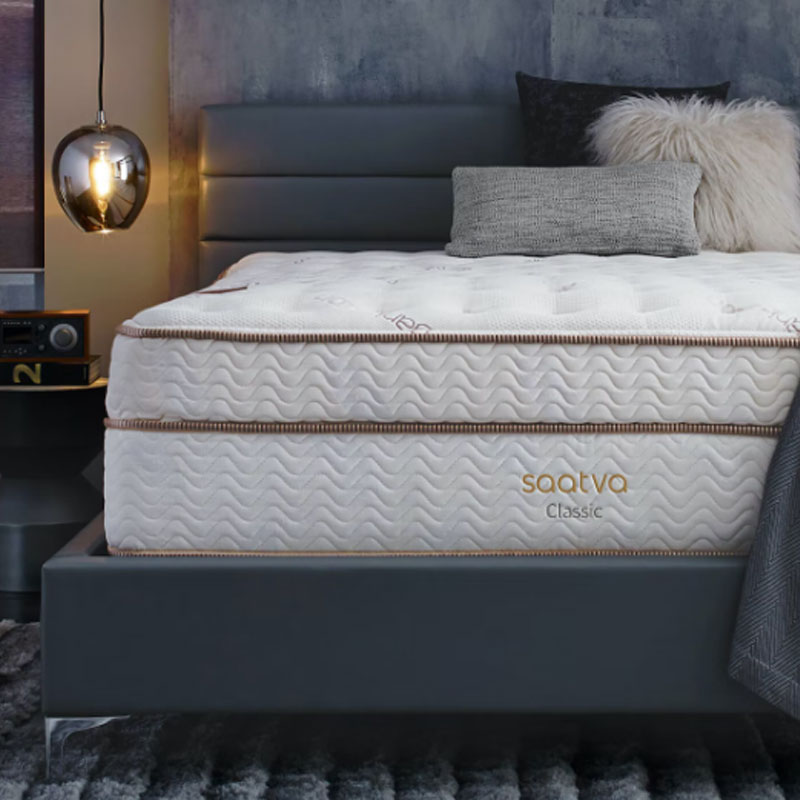
Time for a mattress upgrade? The Saatva Classic Mattress ranks highest in our best mattress guide, and while mattresses are a very personal thing and you should shop around a bit – this hybrid mattress is a great all-rounder that has the option of different firm levels so you can pick what suits.
Read our full Saatva Classic Mattress review for more detail.
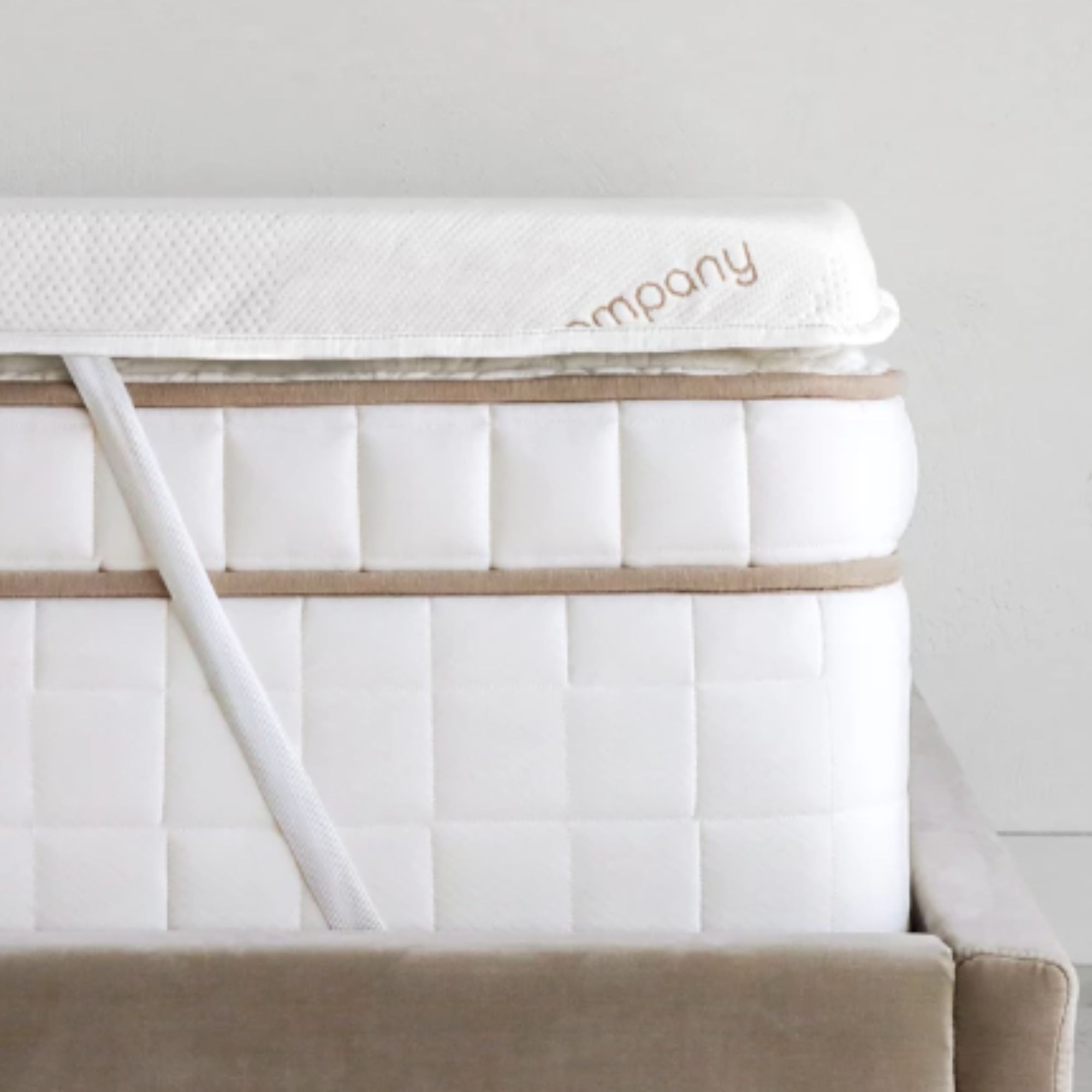
If you aren't in the market for a new mattress, but looking for a more affordable way to update your current setup, a mattress topper can do just that. Top of our rankings is the Saatva Graphite Mattress Topper. Its 3" medium-firm design appeals to all sleep types and is perfect if you like that sink-in, body-hugging effect.
Our Saatva Graphite Mattress Topper review has more details.
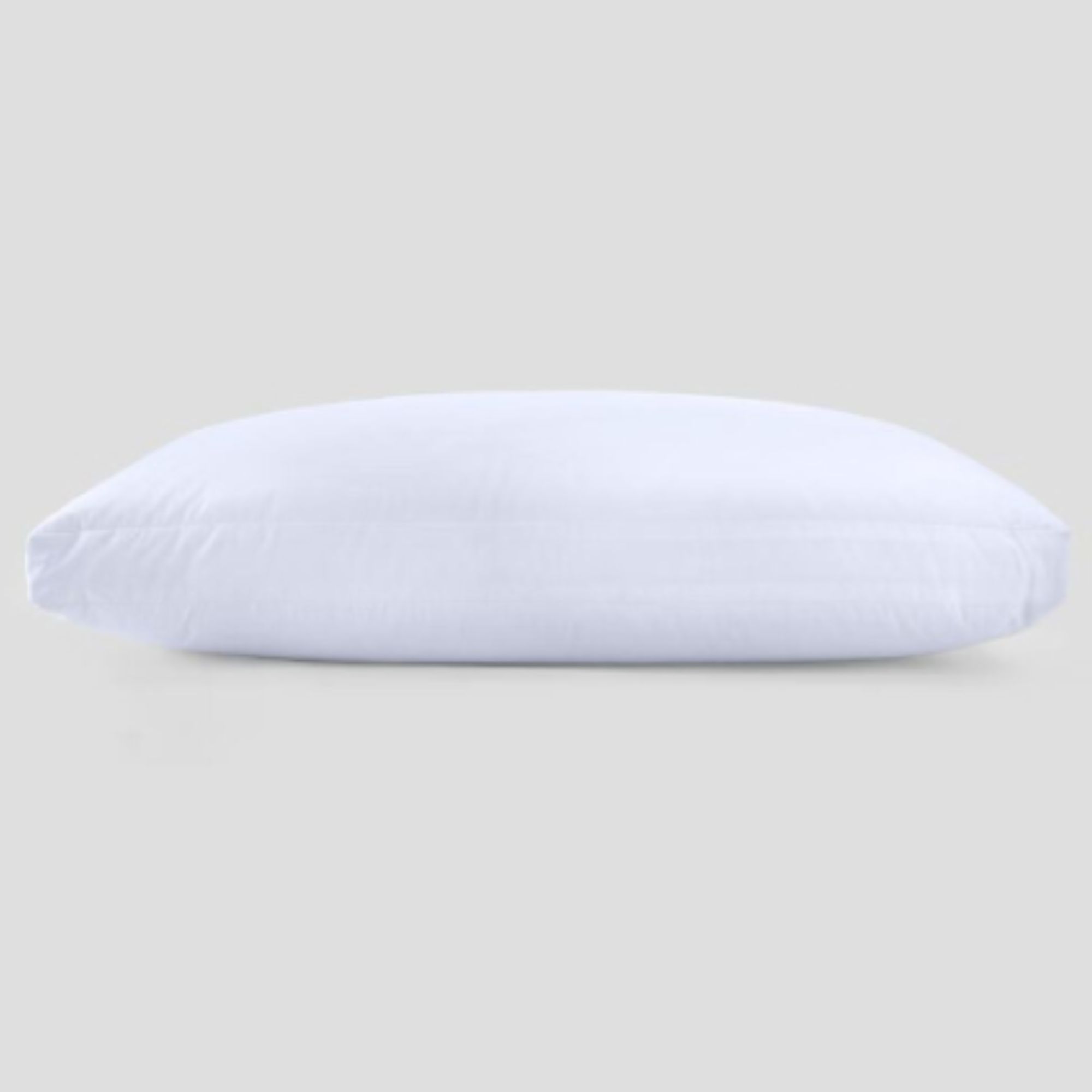
A new pillow can make all the difference to your quality of sleep, and this is our pick of the best. The Casper Original Pillow offers plenty of comfort and support and suits all sleeping styles. It's super plush thanks to the individually blown cluster of clump-resistant fibers and won't easily lose shape. And simple and affordable way to update your sleep setup.
Sleep hygiene FAQS
How do you stop waking up at night?
Waking up throughout the night can be a sign of poor sleep hygiene, so start by trying some of the tips we have mentioned above. A couple of points to add, avoid alcohol before bed, as although it may help you drift off to begin with the stimulation effects are guaranteed to wake you up again. And instead of scrolling your phone before bed, try a more relaxing activity like yoga or reading.
How can you fall asleep faster?
Again, just practice good sleep hygiene and get into a good sleeping pattern so your body naturally starts to feel tired at the right times. Try sleep meditations before bed and don't pay too much attention to the time. There are methods too to help you fall asleep fast like the military sleep method, so you could try out those and see what works for you.
Sleep hygiene is so important to feeling both mentally and physically at your best, and it should be something you pay attention to. It's not tricky to change your sleep habits, it just takes time and patience. Start with getting your sleep schedule sorted and ensuring you are getting enough sleep and then make the smaller switches from there.







